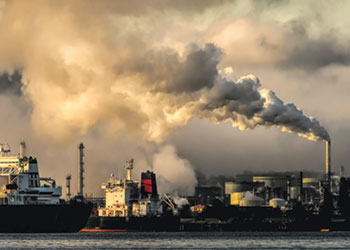

The latest Intergovernmental Panel on Climate Change (IPCC) report has called for urgent climate action can secure a liveable future for all, suggesting there are multiple, feasible and effective options available to reduce greenhouse gas emissions and adapt to human-caused climate change.
"This Synthesis Report underscores the urgency of taking more ambitious action and shows that, if we act now, we can still secure a liveable sustainable future for all," Hoesung Lee, IPCC Chair, said.
The report brings in sharp focus the losses and damages the world is already experiencing and will continue into the future, hitting the most vulnerable people and ecosystems especially hard.
Climate justice is crucial because those who have contributed least to climate change are being disproportionately affected.
The solution lies in climate resilient development. This involves integrating measures to adapt to climate change with actions to reduce or avoid greenhouse gas emissions in ways that provide wider benefits.
For example, access to clean energy and technologies improves health, especially for women and children; low-carbon electrification, walking, cycling and public transport enhance air quality, improve health, employment opportunities and deliver equity. The economic benefits for people’s health from air quality improvements alone would be roughly the same, or possibly even larger than the costs of reducing or avoiding emissions.
Climate resilient development becomes progressively more challenging with every increment of warming. This is why the choices made in the next few years will play a critical role in deciding our future and that of generations to come.
To be effective, these choices need to be rooted in our diverse values, worldviews and knowledges, including scientific knowledge, indigenous knowledge and local knowledge.
Climate, ecosystems and society are interconnected. Effective and equitable conservation of approximately 30-50 per cent of the Earth’s land, freshwater and ocean will help ensure a healthy planet. Urban areas offer a global scale opportunity for ambitious climate action that contributes to sustainable development.
Changes in the food sector, electricity, transport, industry, buildings and land-use can reduce greenhouse gas emissions.
At the same time, they can make it easier for people to lead low-carbon lifestyles, which will also improve health and wellbeing. A better understanding of the consequences of overconsumption can help people make more informed choices.
If technology, know-how and suitable policy measures are shared, and adequate finance is made available now, every community can reduce or avoid carbon-intensive consumption. At the same time, with significant investment in adaptation, we can avert rising risks, especially for vulnerable groups and regions.
With regards to investment, there is sufficient global capital to rapidly reduce greenhouse gas emissions if existing barriers are reduced. Increasing finance to climate investments is important to achieve global climate goals. Governments, through public funding and clear signals to investors, are key in reducing these barriers. Investors, central banks and financial regulators can also play their part.


















































































